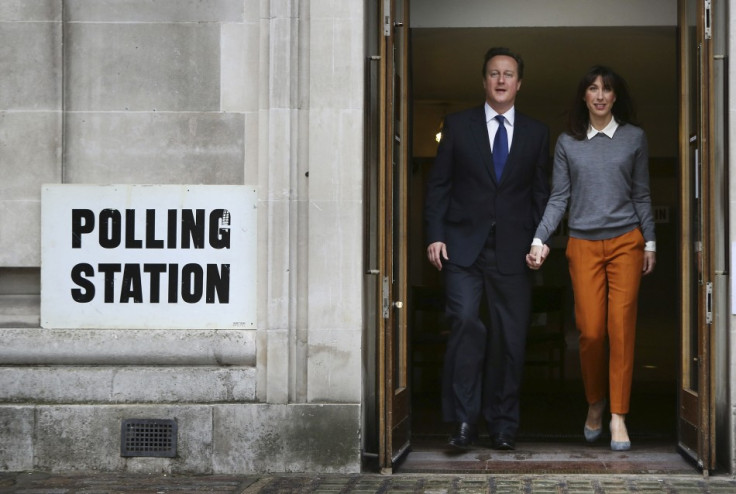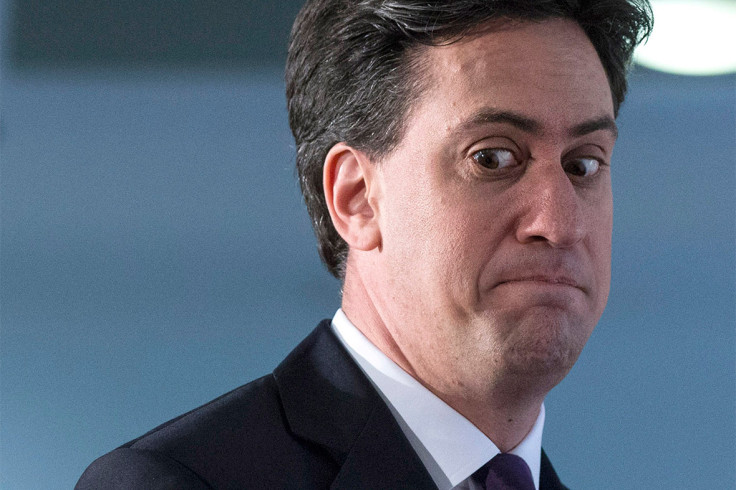General Election 2015: One Year to go and Only Uncertainty is Certain

Exactly a year to go until the general election and only the most foolhardy would stake more than the price of a pint on the outcome.
The only thing that is absolutely certain is that, as government goes into full zombie mode with election fever crowding out any other business, it is going to be an unpredictable, even white-knuckle, 365-day ride.
The nature of the long battle ahead has been highlighted by opinion polls by Survation and YouGov, both putting Labour just one point ahead of the Tories, on 34% to 33% and 35% to 34% respectively.
In reality that means the two parties are neck and neck, but with the recent momentum with the Tories.
The polls go with the recent trend of a narrowing gap over recent weeks, since chancellor George Osborne's politically successful budget and the slew of better economic statistics.
However, as Cameron and his election guru Lynton Crosby undoubtedly reminded MPs on Tuesday night in a pre-election pep talk, thanks to the electoral system and the size of constituencies, a one-point Labour lead on election day would still be enough to give the opposition a Commons majority.
Meanwhile, just as the Conservatives appear to have decided not to panic over the Ukip threat, the British Election Study survey also suggested they probably should after all.
Contrary to expectations, the Farage vote may hold up after the Euro polls and right through to election day, with 60% of people planning to vote for Ukip in the EU poll saying they will stick with it in 2015, giving it an 11% share of the vote.
And that will hurt the Tories most.
The good news for the government is that latest forecasts suggest the economy will continue to recover and Osborne will be able to go to the electorate on 7 May, 2015, and say "I told you so", although he may not want to use exactly those words.

There is mixed news for Labour on its cost of living crisis agenda, with the Survation poll showing that while voters are not feeling the effects of the recovery yet, they think they will over the coming months and 54% saying they think things are starting to get better.
It is exactly that expectation of better times ahead, combined with a message about not letting Labour ruin it, that will underpin the Tory election campaign.
Both parties have been reminded that they have problems with their leaders. Cameron continues to be offered advice from supporters in the media and his own benches about the need to connect more with ordinary voters.
While "weird" Ed Miliband didn't help his case when, in an interview with the Standard newspaper, he said he though he had "more intellectual self-confidence" than the prime minister.
Cue the inevitable headlines about "Big Ed" and suggestions he was claiming to be cleverer than the prime minister when, supporters insist, he was attempting to say he was more confident in his own political beliefs.
Finally, there was a warning from the Institute of Government that civil servants fear their neutrality might come under strain as the two coalition parties attempt to use them to attack each other over the coming year.
One official told the body a new set of guidelines should be drawn up to ensure the party political sniping does not hamper or taint the impartial work of Whitehall or seize up the work of collective government.
That, though, will be a real danger if the zombies start turning on each other. And none of this takes account of the unpredictable Scottish independence vote in September which could derail just about everything.
© Copyright IBTimes 2025. All rights reserved.





















